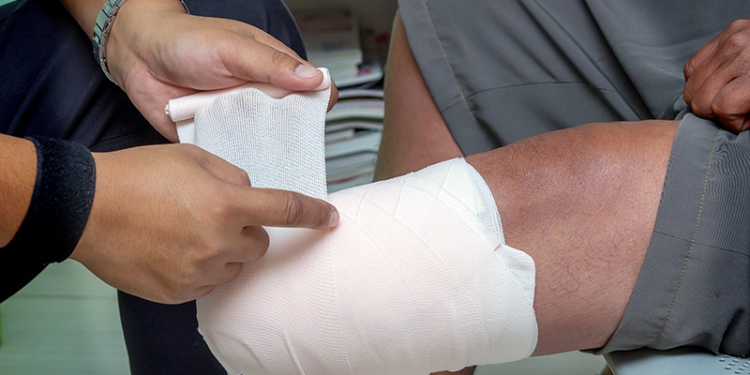 The trial will test functionality, gauge the effect on the children’s quality of life, and determine how they use the arm for specialized tasks.
The trial will test functionality, gauge the effect on the children’s quality of life, and determine how they use the arm for specialized tasks.
Photograph courtesy of OHSU/Kristyna Wentz-Graff.
A partnership between Oregon Health & Science University (OHSU) and Limbitless Solutions, a nonprofit organization based at the University of Central Florida (UCF), has led to the launch of the first U.S. clinical trial of 3D-printed myoelectric upper-limb prostheses for children. Albert Chi, MD, associate professor of surgery in the OHSU School of Medicine, will be the lead clinical investigator in collaboration with Albert Manero, PhD, the CEO and a cofounder of Limbitless Solutions, which developed the prosthesis. Chi directs the targeted muscle reinnervation program at OHSU.
The prostheses operate using a pair of leads placed on the skin that activate as children flex their muscles. Each device can be produced in the UCF lab at a hardware cost of less than $1,000. The latest version of the arm includes multiple motors and smart phone technology to improve a child’s ability to grip objects and perform various gestures.
The clinical trial is recruiting 20 children, 6-17 years old, who will be fitted with Limbitless prostheses. Occupational therapy will be provided over the course of one year in Orlando, Florida, and Portland, Oregon. The trial will test the functionality of the arms, gauge the effect on the children’s quality of life, and determine how they use the arm for specialized tasks. The results will help determine whether the U.S. Food and Drug Administration would approve the arm for market clearance. The researchers hope that this is the first of several U.S. trials.
The trial is open to children nationwide, but participants are primarily being recruited from the Southeastern United States and the Pacific Northwest, as proximity to the two trial sites is key to completing the year-long process.
Editor’s note: This story was adapted from materials provided by OHSU.




